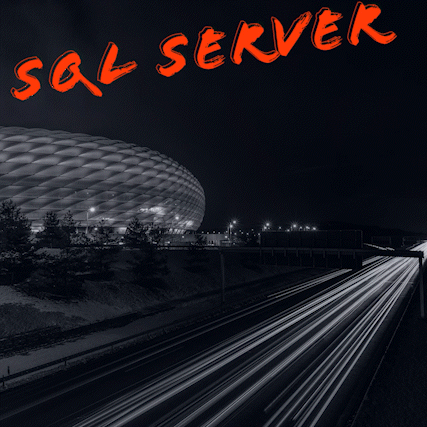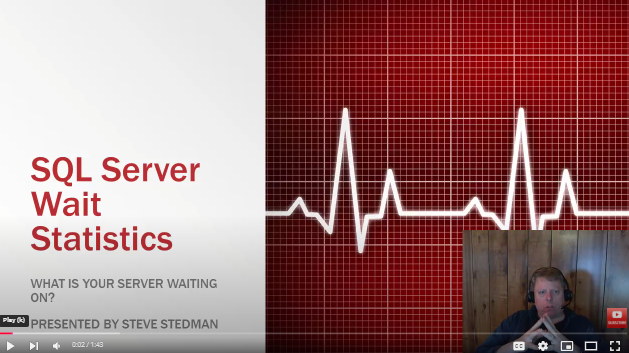Wait statistics, in the context of SQL Server, refer to the amount of time that a query spends waiting to access data in the database. When a client application requests data from the database, the request is placed in a queue and the client application must wait for its turn to access the data. The time that the query spends waiting is called a "wait" and is tracked by SQL Server. This information can be used to identify potential performance bottlenecks and optimize the performance of the database. Wait statistics are commonly used by database administrators to diagnose and troubleshoot performance issues in SQL Server.
In SQL Server, wait types provide valuable insights into what processes are slowing down or causing delays. One wait type specific to Always On Availability Groups is HADR_RECOVERY_WAIT_FOR_UNDO. This wait type appears during failover or recovery operations when SQL Server is waiting for the undo phase to complete. In this post, we’ll explain what HADR_RECOVERY_WAIT_FOR_UNDO means, when it occurs, and how it can affect your SQL Server environment.
What Is the HADR_RECOVERY_WAIT_FOR_UNDO Wait Type?
The HADR_RECOVERY_WAIT_FOR_UNDO wait type occurs during the recovery process in Always On Availability Groups. When a secondary replica transitions into the primary role (such as during a failover), SQL Server ensures that all in-flight transactions are either completed or rolled back to maintain data consistency. The process of rolling back uncommitted transactions is known as the undo phase.
During this time, SQL Server must wait until all uncommitted transactions on the new primary replica are undone before it can fully bring the database online. This ensures that the database is in a consistent state before accepting new queries or updates.
When Does HADR_RECOVERY_WAIT_FOR_UNDO Appear?
This wait type typically appears during:
- Failover Events – When an Availability Group fails over to a secondary replica, the new primary replica must finish rolling back uncommitted transactions before it becomes fully operational.
- Manual Role Changes – During planned failovers or role switches, SQL Server must complete the undo phase as part of the recovery process.
- Replica Recovery After Crash – When a secondary replica recovers from a crash or unexpected shutdown, it must complete undo operations for any incomplete transactions.
The length of this wait depends on the number of uncommitted transactions, their complexity, and the performance of the replica’s storage and CPU.
Why HADR_RECOVERY_WAIT_FOR_UNDO Waits Matter
While the HADR_RECOVERY_WAIT_FOR_UNDO wait type is a normal part of SQL Server’s recovery process, long waits can delay the failover process or the availability of the new primary replica. Prolonged undo waits may signal:
- Large Number of Uncommitted Transactions – If there are many in-flight transactions at the time of failover, the undo phase may take longer to complete.
- Slow Disk Performance – Undo operations rely on efficient I/O to process transaction rollbacks. If the disk subsystem is slow, it can increase wait times.
- Heavy Transactional Workloads – Environments with frequent, large transactions are more likely to experience longer undo phases during recovery.
How to Address HADR_RECOVERY_WAIT_FOR_UNDO Waits
To minimize HADR_RECOVERY_WAIT_FOR_UNDO waits and improve failover performance, consider the following strategies:
- Optimize Transactions – Keep transactions as short as possible to reduce the number of uncommitted transactions at any given time. Avoid long-running transactions that can extend the undo phase.
- Improve Disk Performance – Use high-performance storage (such as SSDs) for transaction logs and data files to speed up undo operations.
- Monitor Replica Workloads – Monitor and balance workloads across primary and secondary replicas to avoid overloading any one replica, which can lead to longer recovery times.
- Test Failover Scenarios – Regularly test failover scenarios in a non-production environment to identify and resolve potential bottlenecks in the recovery process.
Conclusion
The HADR_RECOVERY_WAIT_FOR_UNDO wait type in SQL Server occurs when the system is waiting for uncommitted transactions to be rolled back during the recovery process in Always On Availability Groups. While these waits are a normal part of maintaining data consistency, long undo waits can delay failovers and impact availability. By optimizing transaction workloads, improving disk performance, and testing failover scenarios, you can minimize these waits and ensure smoother transitions in high availability environments.
For expert help with Always On Availability Groups, failover tuning, and SQL Server performance optimization, Stedman Solutions offers managed services to keep your SQL Server environment running efficiently and reliably.

Find out more about our SQL Server Managed Services
Applies to
Related Waits
HADR_AG_MUTEXHADR_AR_CRITICAL_SECTION_ENTRY
HADR_AR_MANAGER_MUTEX
HADR_AR_UNLOAD_COMPLETED
HADR_ARCONTROLLER_NOTIFICATIONS_SUBSCRIBER_LIST
HADR_BACKUP_BULK_LOCK
HADR_BACKUP_QUEUE
HADR_CLUSAPI_CALL
HADR_COMPRESSED_CACHE_SYNC
HADR_CONNECTIVITY_INFO
HADR_DATABASE_FLOW_CONTROL
HADR_DATABASE_VERSIONING_STATE
HADR_DATABASE_WAIT_FOR_RESTART
HADR_DATABASE_WAIT_FOR_TRANSITION_TO_VERSIONING
HADR_DB_COMMAND
HADR_DB_OP_COMPLETION_SYNC
HADR_DB_OP_START_SYNC
HADR_DBR_SUBSCRIBER
HADR_DBR_SUBSCRIBER_FILTER_LIST
HADR_DBSEEDING
HADR_DBSEEDING_LIST
HADR_DBSTATECHANGE_SYNC
HADR_FABRIC_CALLBACK
HADR_FILESTREAM_BLOCK_FLUSH
HADR_FILESTREAM_FILE_CLOSE
HADR_FILESTREAM_FILE_REQUEST
HADR_FILESTREAM_IOMGR
HADR_FILESTREAM_MANAGER
HADR_GROUP_COMMIT
HADR_LOGCAPTURE_SYNC
HADR_LOGCAPTURE_WAIT
HADR_LOGPROGRESS_SYNC
HADR_NOTIFICATION_DEQUEUE
HADR_NOTIFICATION_WORKER_EXCLUSIVE_ACCESS
HADR_NOTIFICATION_WORKER_STARTUP_SYNC
HADR_NOTIFICATION_WORKER_TERMINATION_SYNC
HADR_PARTNER_SYNC
HADR_READ_ALL_NETWORKS
HADR_RECOVERY_WAIT_FOR_CONNECTION
HADR_REPLICAINFO_SYNC
HADR_SYNC_COMMIT
HADR_SYNCHRONIZING_THROTTLE
HADR_TDS_LISTENER_SYNC
HADR_TDS_LISTENER_SYNC_PROCESSING
HADR_TIMER_TASK
HADR_TRANSPORT_DBRLIST
HADR_TRANSPORT_FLOW_CONTROL
HADR_TRANSPORT_SESSION
HADR_WORK_POOL
HADR_WORK_QUEUE
HADR_XRF_STACK_ACCESS
See Also
All Wait Types


